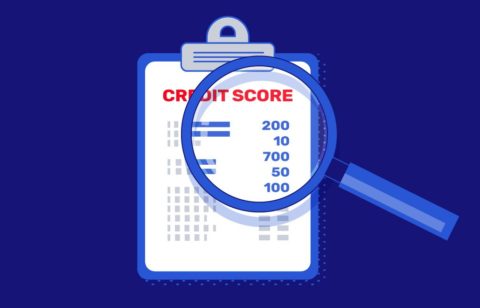Like it or not, your credit report provides a window into your financial life to see if you’re worthy of getting a loan, a credit card, or even a job. Those inquiring can also potentially see whether you’ve ever been sued or arrested, or filed for bankruptcy. This information is sold to those seeking information about you, such as creditors, potential employers, insurers, and potential landlords.
While the Federal Fair Credit Reporting Act (FCRA) works to help improve the accuracy and privacy of information reported on you, it’s still very important that you check your credit report regularly.
This is because the information in your credit report can have a big impact on your life. It can affect whether you can get a loan such as a mortgage or auto loan, as well as the interest rate creditors will charge you. You should also check your credit before you make a big financial move or apply for a job. Employers see your credit report as a reflection of what kind of employee you’ll be. Another reason to check your credit report is to guard against identity theft. Identity theft happens when someone accesses your personal information to make a fraudulent transaction. Identity theft can have a severe negative effect on your credit, and it can take a long time to resolve. It can also affect your ability get a job, an insurance policy, or a mortgage.
When a negative event appears on your credit report, there’s nothing to do other than let the necessary time pass while you wait for it to fall off. Credit-reporting agencies can continue to report negative events for seven years, and report a bankruptcy for up to 10 years. If you have an unpaid judgment, that can also be reported for seven years or until the end of the statute of limitations. If you have a criminal conviction, that information can be reported as well. Reporting usually starts on the date that the adverse event occurred.
If you are one of the 35% of Americans who’ve never made an inquiry into their credit, it’s entirely possible that there’s a significant error on your credit report. A report by the Federal Trade Commission (FTC) indicated that about one in every four Americans, upon checking their credit, found at least one error that could have a significant impact on their credit status. The truth is that while credit-reporting errors are somewhat rare, there’s a mechanism to dispute inaccurate reporting. It’s important, though, that you follow some important steps when trying to remove inaccurate information from your credit report.
Step 1: Order a free report
According to an amendment to the Federal Fair Credit Reporting Act (FCRA), each of the three credit reporting agencies is required to provide you with a free copy of your credit report once each year. These credit-reporting agencies are Equifax, Experian, and TransUnion, and you can access your credit report from all three through one website at annualcreditreport.com, by calling 1-877-322-8228, or by filling out an Annual Credit Report Request Form and mailing it to the following:
Annual Credit Report Request Service
P.O. Box 105281
Atlanta, GA 30348-5281
It’s not necessary to contact each of the credit reporting agencies individually. When you make your request, you’ll need to provide important information such as your name and address, date of birth, and social security number. For security purposes, you may need to provide other information that’s unique to you such as your car payment or mortgage payment amount.
You can also get a free copy of your credit report if an application for credit, employment, or insurance is denied based on the information contained in the report. However, you must ask for a copy of your report with 60 days of notification of the adverse action. Other instances that’ll allow you to request a free copy of your credit report are if you’re on welfare, your report is inaccurate because of fraud such as identity theft, or if you’re unemployed and planning to look for a job within 60 days.
If none of these situations applies to you, credit-reporting agencies are allowed to charge a fee for providing you a copy of your credit report if it’s within the 12-month period since you received a free one. If you want to buy a copy of your report, you can utilize the following contact information to purchase one:
Experian: 1-888-397-3742
TransUnion: 1-800-916-8800
www.transunion.com
Equifax: 1-800-685-1111
www.equifax.com
It’s important to understand that the reports you receive may not include every credit account you have. While most national retailers and credit card companies do report information to the credit agencies, some smaller retailers do not.
Once you receive your report, understanding your credit report and being able to identify a potential error is important.
Step 2: Determine if there’s an error
Errors consist of information that appears on your credit report that shouldn’t be associated with you. This could be the result of something being reported past the time it’s allowed by law, or being incorrectly reported.
Some of the errors you might find include errors related to accounts, such as:
- Late payments that are more than seven years old
- Credit cards or loans that don’t belong to you
- Closed accounts closed by you but showing as closed by the lender
- Derogatory mark errors such as paid-off collections showing as unpaid, paid tax liens, or accounts discharged through bankruptcy
- Errors in personal information such as incorrect name, address, or employer information
Keep in mind that missing information is common and doesn’t necessarily constitute an error. Sometimes, it can take some time for current information to catch up to your credit report.
While incorrect personal information is unlikely to affect your credit score negatively, it may tip you off to fraudulent activity associated with your accounts. However, errors related to your accounts and derogatory mark errors can have a significant negative effect on your credit score and your ability to qualify for a credit card or a loan.
Step 3: Notify the reporting agencies if you find an error
You must notify the credit-reporting agencies in writing if you find an error on your credit report. You should include copies of your supporting documents (retain your originals) and any details necessary to identify the errors on the report. It’s important to provide your complete name and address, clearly state the information necessary to illustrate the error, and request removal or correction. Send your dispute paperwork certified mail with return receipt in order to maintain a proper paper trail. Put all the documents submitted in a safe place so you can follow up.
You can also dispute the error directly with the information provider. Sometimes, this can resolve the problem faster. This process will flag the dispute on your credit report as well. If the dispute is resolved in your favor, the information provider must update the information with the credit agency to reflect the change.
Once you’ve submitted your documents, the credit-reporting agency has a limited amount of time to investigate the dispute, usually 30 days. It also has an obligation to provide the information to the creditor that submitted the derogatory information.
Once the creditor that reported the derogatory information receives the information, it must investigate, review, and report to the credit-reporting agency. Once reported, if the information is deemed incorrect, all three credit-reporting agencies must be notified so corrections to credit records can be made.
After everything is said and done, you’re entitled to the results in writing and to a free copy of your credit report, especially if the inquiry results in a change. Once the error is changed or deleted, it cannot be added back to your credit unless the derogatory information is verified by the information provider. The credit-reporting agency is required to give you the name, address, and phone number of the information provider in writing. It’ll also send notice of any correction made to your credit report to those who’ve checked your credit in the previous six months and to employers who’ve accessed your credit report in the last two years. If you fail to resolve the dispute with the information provider, you can request that a statement be added to your credit file and to any reports provided in the future. This statement can also be forwarded to those who’ve recently accessed your credit, but you should be prepared to pay for this service.
Step 4: Follow up with the reporting agency
Although most legitimate disputes are resolved within a couple of weeks, some can take much longer. The credit agencies and the information providers are required to investigate and reach a determination quickly, usually within 30 days of receiving notification of the error from you. If the problem relates to your personal information such as your name, address, and social security number, or public records or inquiries, the credit agencies will handle the matter and will have no need to reach out to the information provider. These types of issues are generally resolved quickly.
However, if the dispute is with a creditor such as one of the credit card companies you do business with or with your mortgage lender, the credit-reporting agency will have to send the details of the problem to that entity in writing. The company that provided the disputed information will then need to investigate and determine the validity of the information. This determination will then be provided back to the credit-reporting agency and you’ll be notified. This process will obviously take much longer.
It’s important that you follow up periodically with the credit agency or information provider to make sure the process is moving along. You want to make sure things are happening as quickly as possible to correct the error on your report.
Once a determination has been made, you may or may not agree with the result. If you don’t agree, there are some additional things you can do. If you filed your dispute directly with a credit-reporting agency, you have the right to have a statement included with your credit report that summarizes your dispute and gives your side of the story. While not an ideal resolution, it can help explain the situation to anyone who pulls your credit. However, if you filed your dispute directly with the information provider, you don’t have this option.
If you feel you’ve been treated unfairly, or you feel there’s a problem with the account information provided, you may file a complaint with a number of agencies. These agencies can include your state’s department of consumer affairs or Attorney General’s office. Another place to file a complaint is with the Consumer Financial Protection Bureau. You can usually file your complaint online and the bureau will, in turn, follow up with the information provider and keep you informed of what’s happening with the complaint.
Your credit report is an important aspect of your financial health, so keeping an eye on it and acting quickly if you discover an error is vital. Don’t let an inaccurate credit report stand in the way of buying a home or landing your dream job. Get a free copy today and make sure it’s accurate. You never know; you may be able to improve your credit score in the process. Furthermore, make sure you’re doing all that you can to avoid scams and identity theft so that you can truly breathe deep when you think about your credit.





